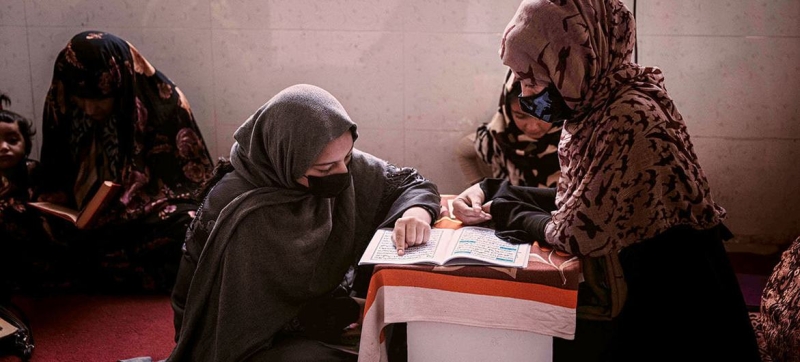
Afghan girls have been out of school for 1,000 days Top news of the day | Friday: Lebanon, Afghanistan, Belarus, II UN
The main news of the day in the UN and in the world: the head of the UN on the situation in Lebanon, the Security Council meeting on Afghanistan, the Group of independent experts on the human rights situation in Belarus, artificial intelligence for sustainable development .
Middle East
UN Secretary-General Antonio Guterres expressed his “deep concern” on Friday about the escalating tensions between Israel and Hezbollah along the Blue Line in Lebanon. He stated this while speaking to reporters at the UN headquarters in New York. Guterres made the announcement as skirmishes along the Blue Line and escalating bellicose rhetoric on both sides signaled the possibility of a “full-scale war.” The Secretary General also stressed that the UN continues to insist on an immediate humanitarian ceasefire in Gaza, the immediate and unconditional release of the hostages and calls for paving the way for a two-state solution.
The situation in Afghanistan
The de facto authorities of Afghanistan continue to maintain stability, but there are signs of growing discontent in the country, Roza Otunbayeva, Special Representative of the Secretary General in Afghanistan, said at a briefing at the UN Security Council. She reported on “popular protests” taking place in Afghanistan against the policies of the de facto authorities, including against the ban on opium cultivation, which has left people without a livelihood. The country’s population lives in poverty despite donors providing billions of dollars in humanitarian aid to those in need. The 2024 relief plan is only 20 percent funded. In addition, Otunbaeva reported that Afghan girls have not been going to school for 1000 days.
Human rights in Belarus
Human rights activists Karinna Moskalenko from Russia, Susan Basilli from Canada and Monika Stanislawa Platek from Poland will monitor the human rights situation in Belarus. This was announced by the Chairman of the UN Human Rights Council (UNHRC) Omar Zniber. A group of independent experts on the human rights situation in Belarus was established by a UNHRC resolution in April of this year. Karinna Moskalenko is assigned the duties of Chairman of the Group. Members of the Panel, like other independent experts of the UN Human Rights Council, act in a personal capacity and do not receive salary for their work.
Artificial intelligence
Artificial intelligence (AI) will help connect 2.6 billion people to the Internet who are still not have access to the network, according to the State of Broadband report prepared by the Broadband Commission for Sustainable Development. Today, the Commission published the first part of the report during an online meeting attended by leaders of governments and international organizations, as well as representatives of the private sector, civil society and academia. The report examines how AI solutions can accelerate progress towards the goals of connecting everyone online and achieving the UN Sustainable Development Goals (SDGs).
